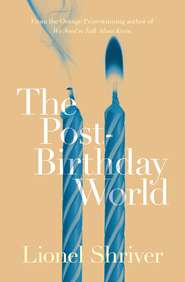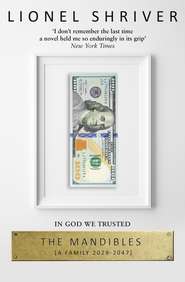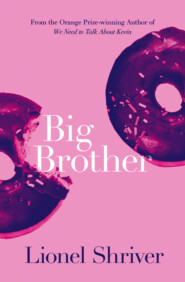По всем вопросам обращайтесь на: info@litportal.ru
(©) 2003-2024.
✖
Ordinary Decent Criminals
Автор
Год написания книги
2018
Настройки чтения
Размер шрифта
Высота строк
Поля
Better you’re not seen running after me, MacBride,” said Farrell coldly to the man in the doorway.
“Only tourists. That was the idea.”
“We were to run into each other. You’re getting sloppy.”
“Successful. Seen off with Farrell O’Phelan, I’ll survive. You’re such a chameleon, I paint you the color I like. More harm done you, I’d think.”
“On the contrary, one of my accomplishments—”
“One of the many,” said MacBride pleasantly.
“—is I can be seen with whomever I like.”
“Everyone knows we were mates back.”
“Everyone was everyone’s mate back,” said Farrell. “What makes this place so sordid.”
“Quite a lolly passed me at the door,” MacBride observed, moving on to more interesting business. “All that black leather, wouldn’t have to dress her up, like.”
“Young for you,” said Farrell distractedly.
“Looks old enough to know how.”
“Haven’t you your hands full with—”
“Ah-ah.” MacBride raised a finger as they drew within earshot of the group. “Now that is sloppy.”
Estrin knew Bad Work, so she recognized the strain in their guide’s patter. He injected his information with artificial enthusiasm, like pumping adrenaline into a corpse. If he kept the job he would have to give over, and not simply to boredom, for there are states far beyond that, where you no longer recognize that at 2:45 there is any alternative to repeating “Our water rises in peaty ground” one more time. It’s relaxing, actually, a sacrifice to other forces. Minutes stretch out so wide and meaningless there is no more time, there are no more questions. Beyond interpretation or struggle, the advanced stages of Bad Work amount to a religious conversion. Also to being dead. She assessed the guide: Estrin would have quit by now.
She swung between the pot stills towering fifteen feet overhead, shining Hershey’s Kisses. Bushmills kept the copper polished—now, that was the job she would keep. Estrin loved metal—its resistance, its arrogance, its hostility. She could see herself arriving weekly with chamois in every pocket, to rub down the curves, the stills now looking less like wrapped chocolate than firm upright breasts.
NO MATCHES OR NAKED FIRE.
It was the sign between them. Estrin, once more lost in her own world, which she was always mistaking for the world at large, had almost run into him. The tall man shot her a weary smile. He did not seem very interested in the distillery.
“We’re honored, sir.” The guide hustled over to Farrell’s friend. “What brings you?”
“Tired of single-handedly supporting the shop short by short. Thought I’d save a few quid to come buy the lot of it.”
The guide laughed. Farrell sighed.
Through the warehouse, where whiskeys married in boundless sherry casks, Estrin hung back to inhale. She tucked away stray jargon—cooper, blend vat, spirit safe—souvenir knickknacks. Pretty and useless, they packed well. Best of all she pocketed the smell, for Bushmills steeped the Antrim coast for miles around with a must of rising bread, liquor, and ripe manure, evoking pictures of a stout woman baking while her fagged-out husband rests his dung-crusted boots on the hearth and slowly gets pissed.
At the end of the tour, downstairs for her sample, Estrin felt sorry for the harried bartender and held back—the woman had to keep smiling and ask, “Hot, black, regular, or malt?” over and over in a happy voice, explaining slowly to Germans what goes into a toddy, fighting back disdain for Americans, who could easily afford a case, still so eager for their free drink. Estrin had the same problem in restaurants, where, whether or not her order was wrong or cold or late, she identified with the waiter rather than herself; in shops she sympathized with rattled salesmen, not clientele; in high-rises she allied herself with reception, janitors; and even in the restroom her heart went out to the lady with the towels. From a well-established Philadelphia family, Estrin Lancaster had downwardly mobile aspirations.
Farrell cast about the crowd, goaded by those sanctimonious poppies on every staff lapel. Thank God, it was Remembrance Day, after which the Somme would once more be over for another good eleven months. Farrell supposed dully that there was nothing wrong per se with mourning your war dead, though of course every gesture was subverted here and that wasn’t what the poppies connoted at all. Those are OUR wars. Those are OUR dead. Take ’em, thought Farrell, childish bastards. Little matter that plenty of Catholics had died in both world wars; fact had never contaminated anyone’s politics in Ireland. (The fiction was wick, since who needed it? We’ve got history.) No, ceremonies were divvied up and the Prods had picked Remembrance Day, the Twelfth, and probably Christmas, since they’d more cash. The Taigs got Easter, Internment Day, and for twenty years a whole smattering of, ah, unscheduled celebrations all across the calendar. Let the Prods have their sorry paper poppies and weepy parades to cenotaphs, it was only fair.
Don’t get the wrong idea. This left Farrell in a conflicted position—Catholics didn’t wear poppies and Prods did, but if Farrell were Protestant, being Farrell, he would refuse to wear a poppy, so to express this alienation in Catholic terms should he wear one instead? For his own people had excluded him as well, or he’d excluded himself; each had leapt to disown the other. Farrell despised groups of all kinds and made sure they despised him in return; then he needed the backs of crowds to feel wholly, spitefully himself. He was no different from the rest of this tip, where you loved your enemy all right, but not quite the way Christ had in mind—loved him precisely for being your enemy, for obliging you with something outside your own mirror to revile.
He was easy to locate, thick platinum hair curling over the crowd. The large crown and high forehead bent toward his boisterous companion. While Estrin found Irishmen a frumpy crew, given to bundling—they wore sweaters with their suits, jackets binding and short in the arm—Farrell’s dark wool three-piece was impeccably tailored, European; his crimson tie, silk handkerchief, and long Dickensian overcoat suggested a kind of style she’d not seen on this island—that is: style.
And, she observed on the way over, he was a drinker, since in this deluge of a country whiskey was the only force of nature that gave the national complexion any color at all. So she was surprised on arriving at their corner to find his measure clear.
“Hot water,” he explained.
“You don’t drink?”
“Wine. After eight.”
“A.m. or p.m.?”
“I sleep little enough to lose the distinction.”
Estrin raised her malt. “I like to break my rules from time to time.”
“You can afford to,” he said severely. “You’re still young.”
“Not that young,” said Estrin with a trace of irritation. “And I can’t afford not to. Too many rules and too much obedience are just as dangerous as going off the deep end.”
“Don’t you worry now,” said the heavier man, slapping his friend on the back. “Farrell O’Phelan’s in no danger of being too obedient a boy, or too faint a drinker, either. Knows how to impress the ladies with a cup of hot water at tourist draws, is all.” He laughed, though Farrell didn’t, exactly, join in.
“You brought me here to torture me,” said Farrell, and meant it; the smell was beginning to get to him. How happy it would make MacBride if he strode up to the bar and threw back a double. And how it firmed his resolution, to deny Angus that joy.
“Now, it was damned decent of Bushmills to open today. And I could hardly meet you at the cenotaph this morning,” MacBride muttered. “Sure you’d hum ‘The Battle of the Bogside’ all through the two minutes’ silence.”
Farrell was about to quip that he was more likely to hum Polish polkas than some whimper of Irish resistance, when he noticed the American’s eyes had sharpened; most foreigners here were clueless, but he did not like the way she looked from one to the other and he did not like the way she looked at MacBride. He shut up. He did not want to be understood. That was the first thing women didn’t understand.
“The fumes off that wort were something, what?” recalled the girl. “Ripped in thirty seconds. Like sniffing glue, and the end of the tube is six feet wide.”
“You sniff glue?” asked Farrell.
“Putting together balsa Sopwith Camels at eight or nine? We breathed too much, they didn’t fly so hot, but we’d had a good time. My life has had to do with airplanes from way back.”
“How so?”
“I’m tempted to return-address envelopes, ‘Window seat. Nonsmoking.’ Though I don’t send so many letters anymore … Lufthansa,” she commended.
He clucked. “Free cocktails, but frozen salad.”
“You travel much?”
“Same address, but on the aisle.”
“Long legs.”
“I like to be the first off the plane.”
“I like to look out the window. Flying into Belfast I was pressed so close to the pane that the man next to me asked if this was my first flight.”











